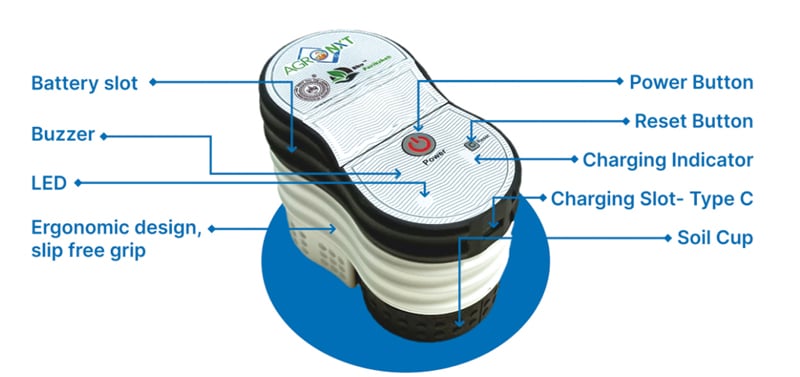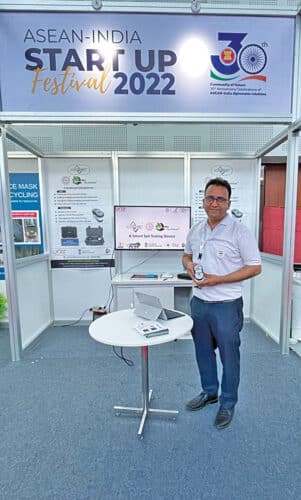- You have no items in your shopping cart
- Subtotal: $0.00

[ad_1]
IIT Kanpur-incubated startup, AgroNxt, which started as a SaaS platform for farmers in 2016, has launched a chemical-free, electronic soil testing tool, called Bhu-Parikshak, this year. It uses NIR spectroscopy and AI/ML to quickly calculate six soil sample parameters.
A typical soil testing lab in India takes 7 to 30 days to test a soil sample for a farmer, according to Rajat Vardhan—the co-founder and CEO of agri-tech startup AgroNxt. But then, one might not expect the 4,000 odd labs to conduct soil tests for India’s 140 million hectares of net sown area any time soon.

This is when the smart and portable soil-testing device Bhu-Parikshak (Hindi for soil tester) comes into the picture. No technical skills are required for its use, but only a smartphone to connect electricity for charging it.
Vardhan and Ashutosh Tiwari started AgroNxt as an advisory platform for the farming community. With a series of data-driven revisions and investment from IIT (Indian Institute of Technology) Kanpur as an equity holder, the team decided to introduce a solution for one of the biggest challenges faced by farmers: the need for a fast, cheap, and chemical-free soil testing equipment.
Interestingly, researchers at IIT Kanpur are already working in this direction. Soon, a team under Prof. Jayant K. Singh came out with Bhu-Parikshak. Vardhan said, “The institute chose AgroNxt to commercialize the product because of our expertise in agriculture and data. They believed that an IoT-based electronics solution, which would plug into our SaaS (software as a service) platform, reach the farming community on a large scale.
Notably, this hardware solution is not directly intended for farmers. Vardhan pointed out, “More than 80% of farmers in India are small and marginal, who cannot afford an individual device, until and unless supported by the government.”
The company is positioning the product for the industry—the 400,000 plus agri-input shops, sugar factories, coffee and tea plantations, and FMCG (fast-moving consumer goods) companies in the agricultural supply chain, who can buy the device. and can provide services. of farmers. “Microentrepreneurs, self-help groups, and farmer producer organizations can also come on board and, in turn, provide soil testing as a service to farmers by charging ₹50 -100 per sample, as it should be economical for these groups,” added Vardhan.
[ad_2]
Source link




